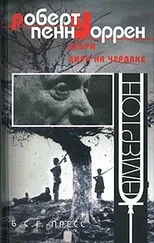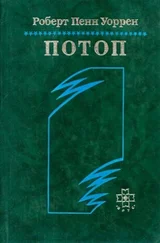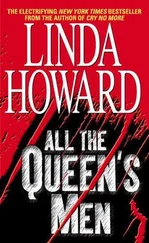Роберт Уоррен - All the king's men
Здесь есть возможность читать онлайн «Роберт Уоррен - All the king's men» весь текст электронной книги совершенно бесплатно (целиком полную версию без сокращений). В некоторых случаях можно слушать аудио, скачать через торрент в формате fb2 и присутствует краткое содержание. Жанр: Современная проза, на английском языке. Описание произведения, (предисловие) а так же отзывы посетителей доступны на портале библиотеки ЛибКат.
- Название:All the king's men
- Автор:
- Жанр:
- Год:неизвестен
- ISBN:нет данных
- Рейтинг книги:4 / 5. Голосов: 1
-
Избранное:Добавить в избранное
- Отзывы:
-
Ваша оценка:
- 80
- 1
- 2
- 3
- 4
- 5
All the king's men: краткое содержание, описание и аннотация
Предлагаем к чтению аннотацию, описание, краткое содержание или предисловие (зависит от того, что написал сам автор книги «All the king's men»). Если вы не нашли необходимую информацию о книге — напишите в комментариях, мы постараемся отыскать её.
All the king's men — читать онлайн бесплатно полную книгу (весь текст) целиком
Ниже представлен текст книги, разбитый по страницам. Система сохранения места последней прочитанной страницы, позволяет с удобством читать онлайн бесплатно книгу «All the king's men», без необходимости каждый раз заново искать на чём Вы остановились. Поставьте закладку, и сможете в любой момент перейти на страницу, на которой закончили чтение.
Интервал:
Закладка:
"Why?"
"Oh, the way I've behaved."
We moved over to the swing on the gallery and sat down. The chains creaked, but we sat so still that the thing did not sway a hair's breadth.
"What have you done?" she asked I fished for a cigarette, found one, and lighted it. I flicked the match out without looking at her face. "What have I done?" I repeated. "Well, it's what I didn't do. I didn't answer your letter."
"That's all right," she said. Then added reflectively, as though to herself, "That was a long time ago."
"It was a long time back, six months, seven months. But I did worse than not answering it," I said. "I didn't even read it. I just set it up on my bureau and never even opened it."
She didn't say anything to that. I took a few drags on the cigarette and waited but there wasn't a word.
"It came at the wrong time," I said finally. "It came at a time when everything and everybody–even Anne Stanton–looked just alike to me and didn't give a damn. You know what I mean?"
"Yes," she said.
"Like hell you do," I said.
"Maybe I do," she said quietly.
"Not the way I mean. You couldn't."
"Maybe."
"Well, anyway that was the way it was. Everything and everybody looked alike. I didn't even feel sorry for anybody. I didn't even feel sorry for myself."
"I never asked you to feel sorry for me," she said fiercely. "In the letter or anywhere else."
"No," I said slowly, "I don't reckon you did."
"I never asked you that."
"I know," I said, and fell silent for a moment. Then said: "I came up here to tell you I don't feel that way any more. I had to tell somebody–I had to say it out loud–to be sure it's true. But it is true."
I waited in the silence, which remained unbroken until I began again.
"It's my mother," I said. "You know," I said, "how it always was with us. How we didn't get along. How I thought that she–"
"Don't!" Anne burst out. "Don't! I don't want to hear you talk that way. What makes you so bitter? What do you talk that way for? Your mother, Jack, and that poor old man your father!"
"He's not my father," I said.
"Not your father!"
"No," I said, and sitting there in the motionless swing on the dark gallery, I told her what there was to tell about the pale-haired and famish-checked girl who had come down from Arkansas, and tried to tell her what my mother had finally given back to me. I tried to tell her how if you could not accept the past and its burden there was no future, for without one there cannot be the other, and how if you could accept the past you might hope for the future, for only out of the past can you make the future.
I tried to tell her that.
Then, after a long silence, she said, "I believe that, for if I had not come to believe it I could not have lived."
We did not talk any more. I smoked another half a pack of cigarettes, sitting there in the swing in the dark with the summer air heavy and damp and almost sick-sweet around us, and trying to catch the sound of her breath in the silence. Then after a long time I said good night, and went down the Row to my father's house.
This has been the story of Willie Stark, but it is my story, too. For I have a story. It is the story of a man who lived in the world and to him the world looked one way for a long time and then it looked another and very different way. The change did not happen all at once. Many things happened, and that man did not know when he had any responsibility for them and when he did not. There was, in fact, a time when he came to believe that nobody had any responsibility for anything and there was no god but the Great Twitch.
At first that thought was horrible to him when it was forced on him by what seemed the accident of circumstance, for it seemed to rob him of a memory by which, unconsciously, he had lived; but then a little later it gave him a sort of satisfaction, because it meant that he could not be called guilty of anything, not even of having squandered happiness or of having killed his father, or of having delivered his two friends into each other's hands and death.
But later, much later, he woke up one morning to discover that he did not believe in the Great Twitch any more. He did not believe in it because he had seen too many people live and die. He had seen Lucy Stark and Sugar-Boy and the Scholarly Attorney and Sadie Burke and Anne Stanton live and the ways of their living had nothing to do with the Great Twitch. He had seen his father die. He had seen his friend Adam Stanton die. He had seen his friend Willie Stark die, and he had heard him say his last breath, "It might have been all different, Jack. You got to believe that."
He had seen his two friends, Willie Stark and Adam Stanton, live and die. Each had killed the other. Each had been the doom of the other. As a student of history, Jack Burden could see that Adam Stanton, whom he came to call the man of idea, and Willie Stark, whom he came to call the man of fact, were doomed to destroy each other, just as each was doomed to try to use the other and to yearn toward and try to become the other, because each was incomplete with the terrible division of their age. But at the same time Jack Burden came to see that his friend had been doomed, he saw that though doomed they had nothing to do with any doom under the godhead of the Great Twitch. They were doomed, but they lived in the agony of will. As Hugh Miller (once Attorney General under Willie Stark and much later Jack Burden's friend) said to him when they were discussing the theory of the moral neutrality of history: "History is blind, but man is not." (It looks as though Hugh will get back into politics, and when he does I'll be along to hold his coat. I've had some valuable experience in that line.)
So now I, Jack Burden, live in my father's house. In one sense it is strange that I should be here, for the discovery of truth had one time robbed me of the past and had killed my father. But in the end the truth gave the past back to me. So I live in the house which my father left me. With me is my wife, Anne Stanton, and the old man who was once married to my mother. When a few months ago I found him sick in the room above the Mexican restaurant, what could I do but to bring him here? (Does he think that I am his son? I cannot be sure. Nor can I feel that it matters, for each of us is the son of a million fathers.)
He is very feeble. Now and then he has the strength to play a game of chess, as he used to play with his friend Montague Irwin long ago in the long room in the white house by the sea. He used to be a very good chess player, but now his attention wanders. Or on good days now he sits in the sunshine. He can read his Bible a little. He is not strong enough to write any more, but occasionally he dictated something to me or Anne for a tract which is he is writing.
Yesterday he dictated this to me: The creation of man whom God in His foreknowledge knew doomed to sin was the awful index of God's omnipotence. For it would have been a thing of trifling and contemptible ease for Perfection to create mere perfection. To do so would, to speak truth, be not creation but extension. Separateness is identity and the only way for God to create, truly create, man was to make him separate from God Himself, and to be separate from God is to be sinful. The creation of evil is therefore the index of God's glory and His power. That had to be so that the creation of good might be the index of man's glory and power. But by God's help. By His help and His wisdom.
He turned to me when he had spoken the last word, stared at me, and then said, "Did you put that down?"
"Yes," I replied Staring at me, he said with sudden violence, "It is true. I know it is true. Do you know it?"
I nodded my head and said yes (I did so to keep his mind untroubled, but later I was not certain but that in my own way I did believe what he had said.)
Читать дальшеИнтервал:
Закладка:
Похожие книги на «All the king's men»
Представляем Вашему вниманию похожие книги на «All the king's men» списком для выбора. Мы отобрали схожую по названию и смыслу литературу в надежде предоставить читателям больше вариантов отыскать новые, интересные, ещё непрочитанные произведения.
Обсуждение, отзывы о книге «All the king's men» и просто собственные мнения читателей. Оставьте ваши комментарии, напишите, что Вы думаете о произведении, его смысле или главных героях. Укажите что конкретно понравилось, а что нет, и почему Вы так считаете.





![Роберт Уоррен - Рассказы [Компиляция]](/books/419993/robert-uorren-rasskazy-kompilyaciya-thumb.webp)


